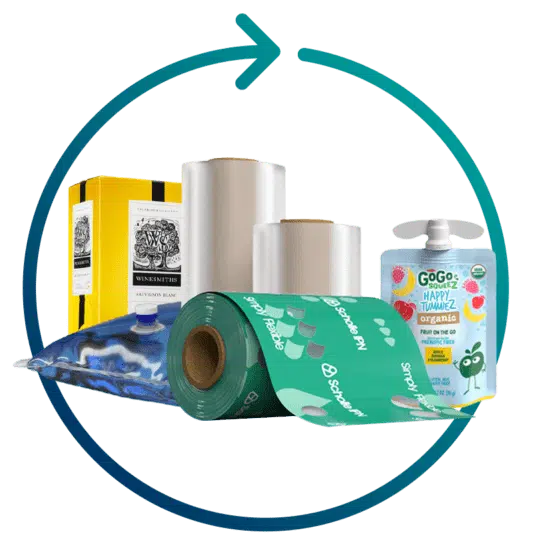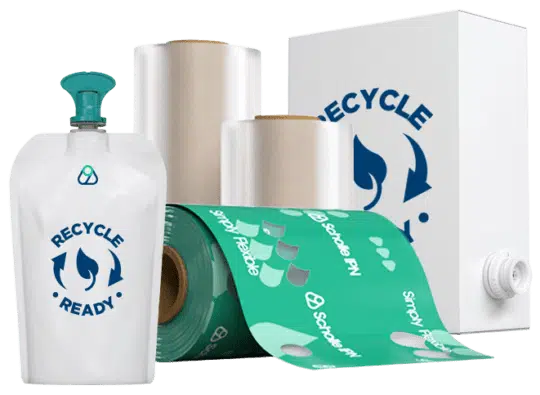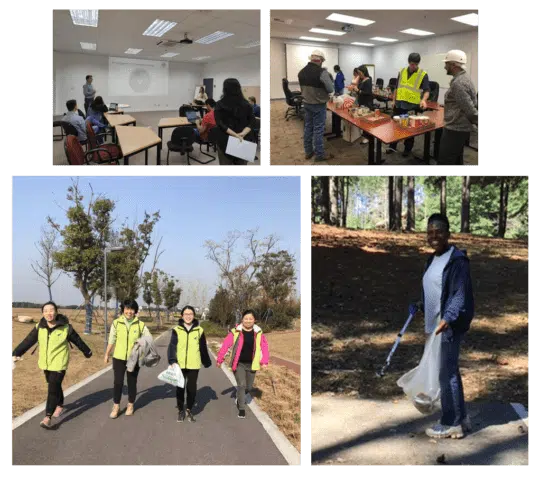On Earth Day, Please Make a Long-Term Commitment to Responsible Packaging
April 22, 2021
Ross Bushnell, Scholle IPN Northlake, IL, USA
Ross Bushnell is President and CEO of Scholle IPN and has worked in global packaging businesses for many of his 18 years in the industry. Prior to his packaging career, Ross spent a decade in the agricultural industry and was a graduate of Harvard Business School and the University of South Dakota.
Scholle IPN, our people, and our product portfolio have always reflected a concerted commitment to sustainability. For Earth Day, I would like to take a moment to join the growing chorus of concerned people around the world to encourage all who can to explore ways to reduce our environmental impact.
Today, the people of Earth face multiple environmental challenges: food supply and access, universal access to clean water, the depletion of fossil fuels, a changing climate, and pollution (air, water, and soil) to name just a few. While no single action will solve all these issues, each one of us can make a positive impact if we simply commit to do our part.
The good news is that there are tangible ways to reduce our environmental footprint. People around the world are working to identify action steps that we can take to positively impact the environment. At Scholle IPN, we are constantly on the lookout for great ideas that build on our core principles while enabling us to do more with less (less material, less time, less waste, less energy, less water, less…well, everything!).
This Earth Day, we hope to encourage you to join us in making a long-term environmental commitment that extends beyond an annual day of awareness.
Think (and Act) within a Circular Economy
 The first step is to acknowledge our desire to make a change. At Scholle IPN, we are focused on the sustainable supply of films, fitments, and equipment for flexible liquid packaging. We do that by using the principles of circular economics (source reduction and material reuse or repurposing), but we have a long way to go.
The first step is to acknowledge our desire to make a change. At Scholle IPN, we are focused on the sustainable supply of films, fitments, and equipment for flexible liquid packaging. We do that by using the principles of circular economics (source reduction and material reuse or repurposing), but we have a long way to go.
According to HSBC, the global economy is only 9% “circular” today. By their measure, almost one-third of all food produced in the world is wasted and 60% of all materials are either landfilled or incinerated. A shift to a more circular economy would result in dramatic reductions of food waste and materials from landfills AND has the potential to unlock an additional $4.5 trillion (yes, that’s 12 zeroes) of global GDP by 2030.[1] That is a goal worth fighting for.
At Scholle IPN, we rely on the principles of circular economics throughout our value chain. That process starts with the design of our films and fitments. While recyclability of the final package is our top goal, we also consider use and movement of our products from production to distribution to consumers. We design products that require fewer raw materials while meeting or exceeding the performance requirements of our customers. Through the use of lightweight films and fitments, our production processes emit fewer greenhouse gases. Our products are more efficient to pack, ship and store – thereby requiring fewer trucks and less fuel in the supply chain – all while protecting the valuable food product inside.
Reduce, Reuse, Recycle
 Operating sustainably is a process. While we work globally to establish infrastructure for recycling all packaging materials, we needn’t wait to have a positive impact in the world.
Operating sustainably is a process. While we work globally to establish infrastructure for recycling all packaging materials, we needn’t wait to have a positive impact in the world.
We start by considering options including source reduction and reusability of resources. The most common reference to this kind of thinking is: “Reduce. Reuse. Recycle.” While recycling gets the focus in the press, reduction and reuse can have far more impact more quickly and can do so WHILE we work for globally sustainable recycling capabilities.
At Scholle IPN, our pledge is to be a key part of the global recycling solution WHILE also using less material and finding ways to reuse what we do produce. We are proud to be in the flexible packaging space because our products outperform most rigid formats while using a fraction of the materials and with comparatively miniscule greenhouse gas emissions. That is a winning combination for us, our customers, and the Earth!
Working to Make a Difference – Around the World
 At Scholle IPN, our responsibility to the planet extends beyond making environmentally-friendly products. We encourage our employees to actively engage in community service. Each of our 19 location sites design volunteer and giving initiatives specific to their region and the needs of their community. Some examples include:
At Scholle IPN, our responsibility to the planet extends beyond making environmentally-friendly products. We encourage our employees to actively engage in community service. Each of our 19 location sites design volunteer and giving initiatives specific to their region and the needs of their community. Some examples include:
- Our team in Palghar, India, volunteered to plant and care for trees around an industrial site that helped reduce air pollution.
- Our Peachtree City, Georgia, employees participated in local neighborhood cleanups and established donation drives to raise money for cancer research.
- Our Northlake, Illinois, team hosts a children’s day during which kids get to actively engage with engineers and scientists and learn about the value of our products and the opportunities that come from science and technology in our everyday world.
We are also committed to the use of renewable sources of energy – and utilize them in many of our locations, including Merced, California; Suzhou China; and Edinburgh North, South Australia. The benefits are obvious. Our Suzhou, China, plant is outfitted with 2,728 solar panels, which produce 860 kilowatts of energy, reduce air pollution, and reduce carbon emissions by 973 tons per year.
At Scholle IPN, we’re passionate about designing flexible packaging for the circular economy, and we can’t wait to help you on your sustainability journey. Drop us a line if you’re ready to commit to better packaging solutions for the environment and for the future.
Scholle IPN works with companies across the globe to find the right responsibly designed packaging for each of our clients. Read about how we’ve helped businesses like Chevron, Winesmiths, and Joyride Coffee decrease their environmental footprint.
